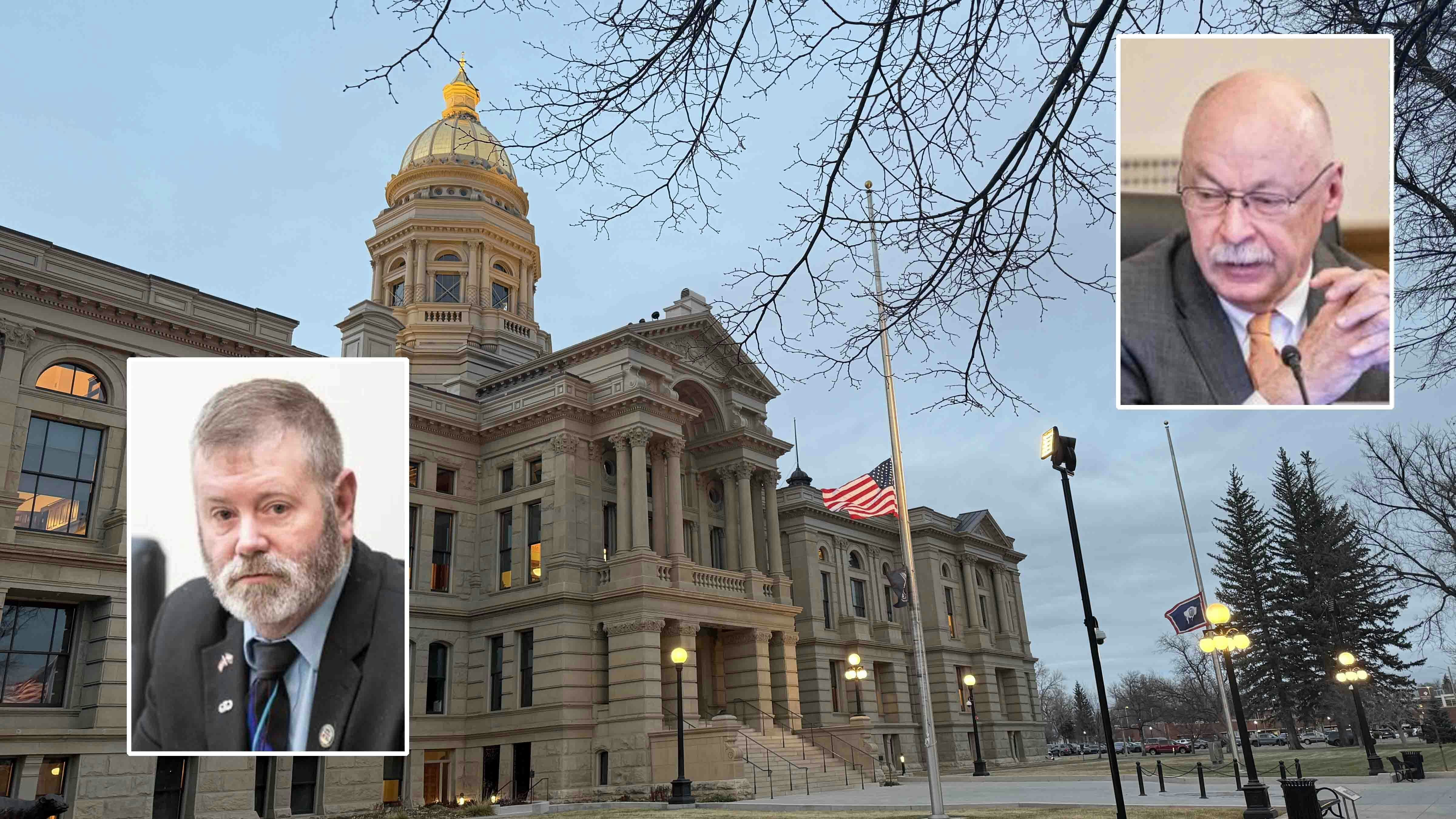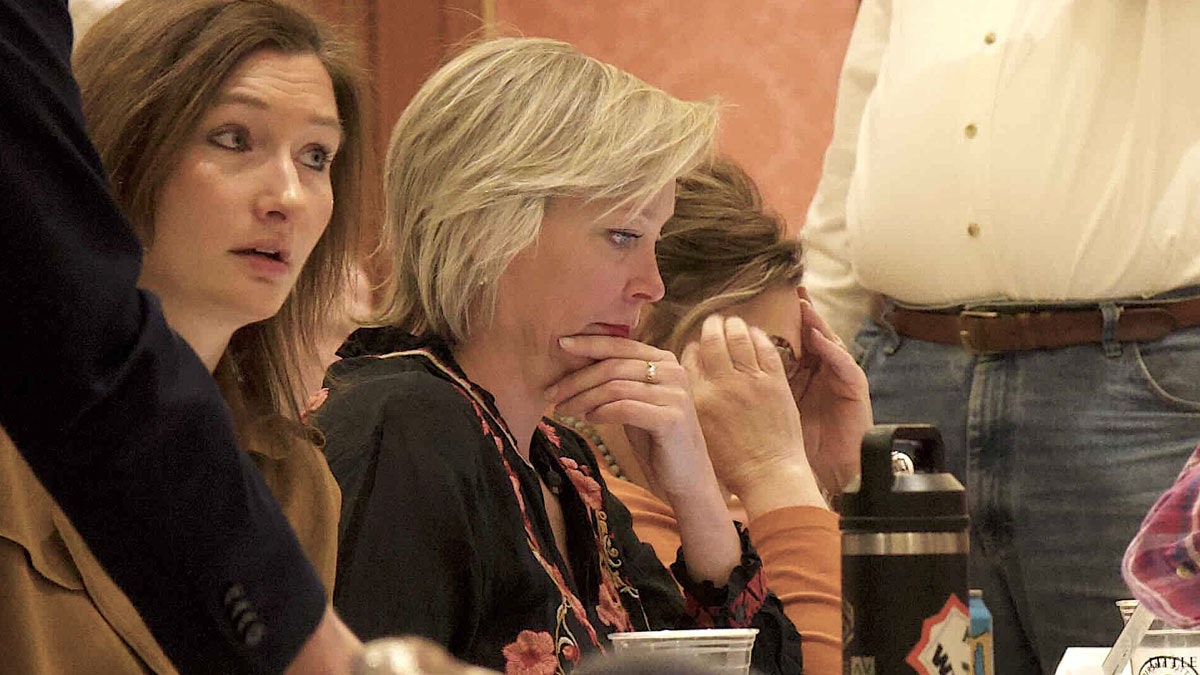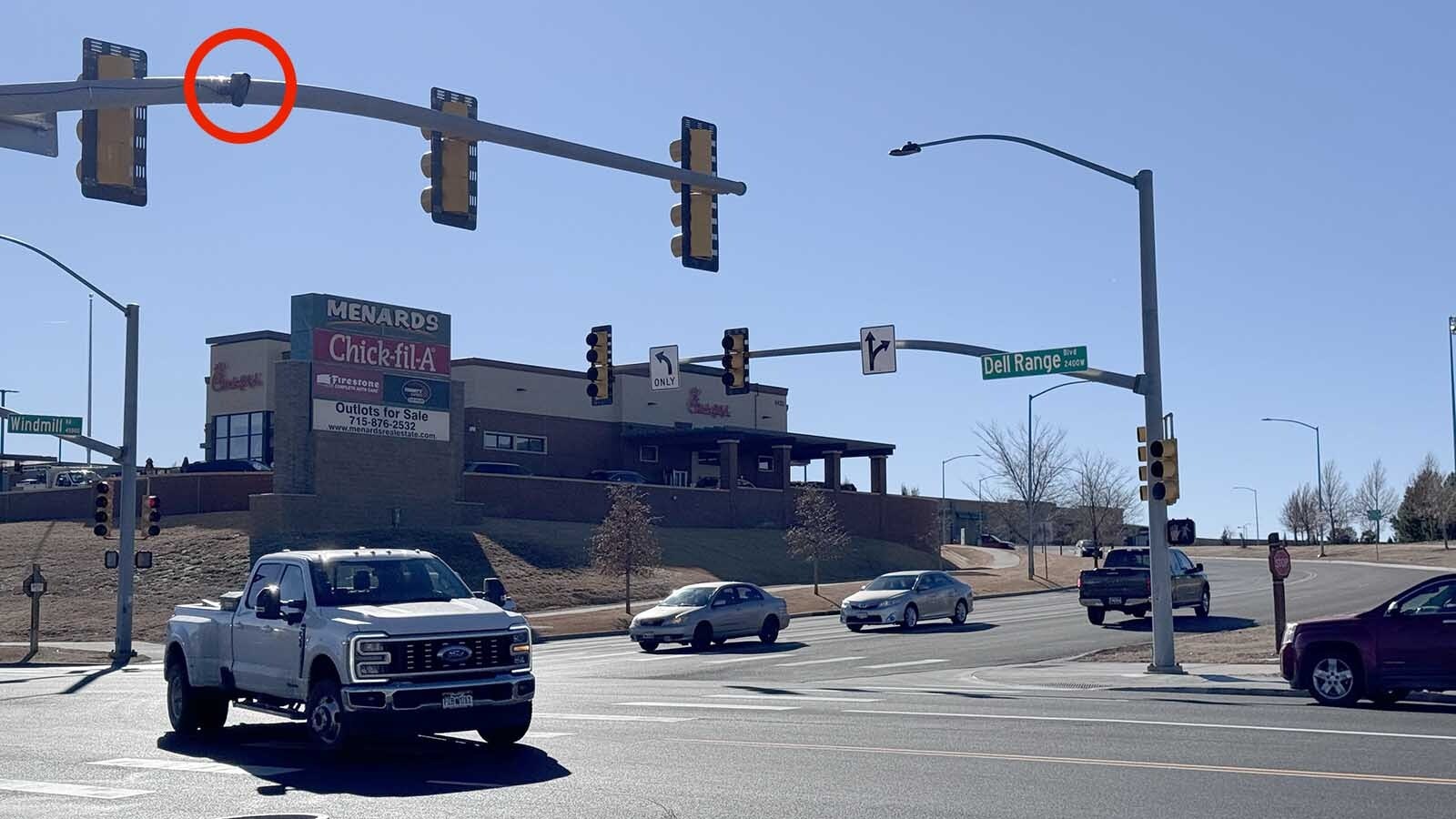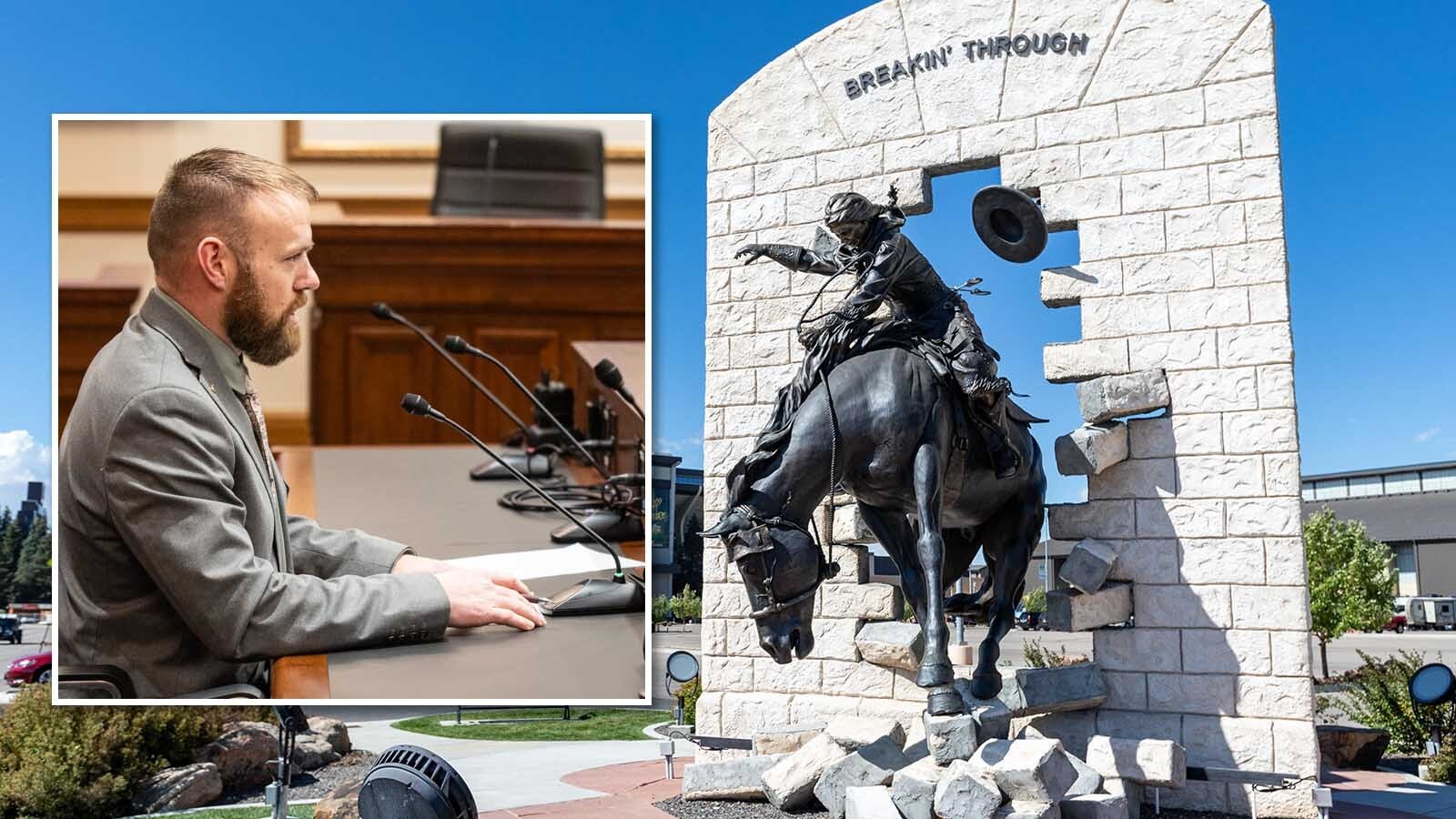The Wyoming Legislature’s Joint Revenue Committee advanced five property tax reform plans Wednesday, for consideration in the lawmaking session that opens Feb. 9.
One of the measures, if passed by the Legislature and the people of Wyoming, would change the state Constitution to eliminate residential property tax altogether.
A bill that would trigger into place after passage of that constitutional amendment would increase Wyoming’s base sales tax of 4%, to 6%.
Many counties have added optional local taxes and tax their consumers at 5% or 6% already, or in the case of Teton County, at 7%.
The local governments and schools that benefit from residential property taxes are expected to lose, collectively, $644 million per year if the amendment passes, says a Wyoming Legislative Service Office (LSO) document that draws from 2025 assessments.
Each new “penny” or 1% sales tax brings the state about $237.5 million based on the 2025 distribution, Wyoming Department of Revenue Director Brett Fanning told the committee as it met Wednesday in Cheyenne.
So the 2% increase would bring $475 million “give or take,” he said.
The bill also would exempt “big projects,” as Fanning put it. Its language carves out industrial facilities permitted through the Industrial Siting Council from having to pay the added 2%.
The Specter…
The specter of an income tax surfaced multiple times during the discussion.
Ted Hanlon, a resident who spoke during the public comment section of the meeting, said sales taxes are regressive, meaning they harm or don’t spare poor people.
“An income tax was not something y’all considered?” asked Hanlon.
Committee Co-Chair Sen. Troy McKeown, R-Gillette gave an abrupt “No.”
Some in the room laughed.
Rep. Clarence Styvar, R-Cheyenne, worried aloud about the possibility of an income tax in a decade.
“I wish I had that crystal ball,” answered McKeown.
Rep. Jayme Lien, R-Casper, told the public she wanted to make it “abundantly clear, that (neither) I nor this committee have any intentions of making an income tax.”
“Amen,” answered McKeown.
As for progressive versus regressive taxes, Sen. Bob Ide, R-Casper, said the concept is rather about fairness.
“A sales tax is a much fairer tax,” he said. “At least with a consumption tax, you can control (it).”
With property taxes, homeowners are taxed on a static asset, essentially “renting from the government,” said Ide. “To me, that’s not right.”
Not one constituent has approached him to say the legislature should not have cut property taxes by 25%, as they did this year, Ide added.
The sales tax is meant to answer the growing complaints of Wyoming’s counties and towns, which are either already seeing, or bracing for revenue reductions in a future housing market decrease.
The counties are wildly different in nature, and some more dependent on residential property taxes than others, Wyoming County Commissioners Association Executive Director Jerimiah Rieman told legislators.
“If you’ve seen one county, you’ve seen one county,” said Rieman.
Rieman and others brought another concern, however: that special districts, which are essentially neighborhoods that have chosen to tax themselves to fulfill a project or build an institution, can be wholly reliant on residential property taxes.
And they may have incurred debts, based on borrowing assessments drawn from their local property taxes, said Wyoming Department of Revenue Property Tax Division administrator Ken Guille.
The committee heard other warnings.
On the other hand, said Rieman, if the state tries to help the special districts by backfilling them with state-crafted sales tax revenues, that could incentivize more special districts to form – since the locals could then compel state residents from other locales to pay into their projects.
Rep. JR Riggins, R-Casper, asked whether cutting property taxes could motivate people to buy up vacant homes in Wyoming, not put them to use in housing actual residents, wait for inflation to soar and then sell the homes at a profit; without contributing to the state’s coffers in the meantime.
“It’s land without a penalty,” said Riggins, who was also speaking to one woman’s concerns about housing shortages.
Wyoming Farm Bureau Federation public advocacy director Brett Moline said substituting property taxes with sales taxes could hurt businesspeople, including farmers. Fanning asked lawmakers to consider whether the measure would drive northern-Wyoming residents to shop in Montana, which doesn’t have sales taxes.
Enough Already
Sen. Dan Dockstader, R-Afton, said he’s been looking for a solution to all these questions “for quite some time.”
He lives in a unique portion of the state, he acknowledged, where the proximity to the resplendent Grand Tetons and the ultra-wealthy Teton County have spiked home values and the property taxes tied to them.
“I hear repetitively (of) property tax issues,” said Dockstader, adding that his constituents have borne a 112.6% increase.
“A 112.6% increase for my average person just living their life, taking care of their job, their family, doing what they need to do is not acceptable,” he said.
The government may have to adjust to foundational changes just as a private business does in crisis, he added.
Roll Call
Sen. Cale Case, R-Lander, voted against the sales tax bill. So too did Styvar, Lien and Riggins.
The other committee members present voted aye.
Sens. Stephan Pappas, R-Cheyenne; and Rep. Liz Storer, D-Jackson, were not present and were marked as excused.
On the constitutional amendment to eliminate property taxes altogether, Case also voted no. He was the lone nay vote. By then, Rep. Bob Wharff, R-Evanston, was marked as excused. So too was Dockstader.
The Rest Of The Story
The committee advanced other bills and measures affecting the way property taxes are assessed and removing the expiration date on a long-term homeowner exemption program.
Even though the constitutional amendment’s passage would moot those if it passed, said McKeown, it’s important to send all strategies to the legislature for consideration.
The assessment bill would change county assessors’ tally of appropriate property tax values, so they would base it on 2019 values, plus an escalator for inflation. For homes acquired after Jan. 1, 2020, the assessment method would be equal to the fair market value when it was last acquired.
The escalation would apply there as well.
Committee members advanced an amendment to put a deescalating measure into the bill, should the home market drop.
The committee adopted a related, proposed constitutional amendment giving the legislature more leeway to determine residential property tax assessment methods.
Clair McFarland can be reached at clair@cowboystatedaily.com.






